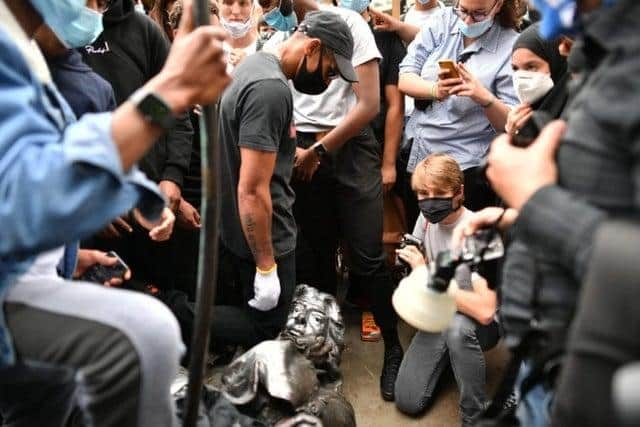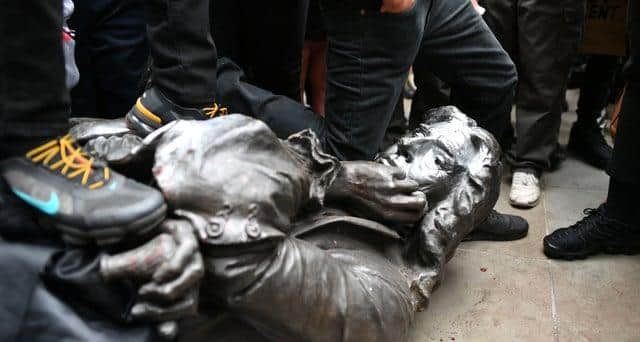Black Lives Matter protesters topple statue of British slave trader before pushing it into river
A 17th century memorial of a slave owner has been pulled down and thrown into a river amid Black Lives Matter protests.
The statue of Edward Colston, a slave owner, was torn down by anti-racist activists in Bristol this afternoon.
Advertisement
Hide AdAdvertisement
Hide AdDuring Colston's career, it is estimated that around 84,000 African slaves were traded, 19,000 of whom died on ships headed to the Americas.


The memorial has long been a source of anger in the community, with it representing the city's role in the slave trade.
Police have launched an investigation into who is responsible for toppling the statue.
BBC footage shows protesters dragging the 18-foot bronze statue and throwing it into the river Avon.


It has been reported the demonstrations in Bristol were predominantly peaceful, with just a few causing a disturbance.
Colston became a member of the Royal Africa Company in 1680, rising the ranks on the board until he secured the role of Deputy Governor – it's most senior position.
The company held the monopoly on trade in slaves, gold, silver and ivory on the West coast of Africa.
According to the Slave Voyages Database, during Colston's time at the helm it is estimated that around 84,000 African slaves were traded, 19,000 of whom died in inhumane conditions on ships travelling to the Caribbean and the Americas.
Also a former Member of Parliament, he has three schools named after him in Bristol, is commemorated at several landmarks and on streets across the city.
Comments
Want to join the conversation? Please or to comment on this article.